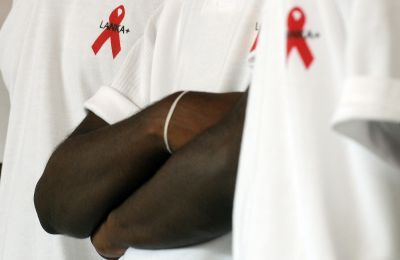'Patent pool' to boost AIDS drug access

A global "patent pool" for AIDS drugs will be launched next year in a bid to slash billions off the cost of producing generic medecines for the developing world, the UNITAID drug purchase fund said.
UNITAID head Philippe Douste-Blazy told AFP the mechanism was given the green light at a board meeting in Geneva Monday and aims to supply latest-generation anti-retroviral drugs to AIDS sufferers in low- and medium-income countries.
Douste-Blazy said the scheme, set to be up and running by mid-2010, marked "an enormous step for humanity."
Under the new mechanism, pharmaceutical firms will share drug patents on a volontary basis with the pool, which will license them to generic manufacturers in exchange for royalties on sales.
UNITAID will provide start-up funds of four million dollars (2.75 million euros) over the coming year, and has so far held talks with US pharmaceutical firms Gilead, Johnson and Johnson, Merck and Sequoia on signing up, it said.
Drugs produced via the patent pool would be destined exclusively for the developing world, where resistance to existing anti-retroviral drugs among AIDS patients is spurring the need for newer, patented medecines.
The scheme would enable generic manufacturers to combine "newer and more effective drugs from different companies" into so-called fixed-dose combination drugs, something until now made difficult by patent restrictions, UNITAID said.
By spurring competition between pharmaceutical labs, it believes the scheme has the potential to slash more than a billion dollars off the annual cost of treating AIDS sufferers in developing nations.
UNITAID has identified 19 products from nine drug firms for potential inclusion in the pool.
Douste-Blazy also said the pool would facilitate the production of specially-dosed medecines for children, who account for 10 percent of current AIDS treatment needs.
International charity Medecins Sans Frontieres welcomed "a decisive step to improve access to medicines in the developing world," but warned that success would depend on solid backing from drug firms.
"Patent holders need to move from expressions of general support to firm and formal license commitments," said Michelle Childs, MSF's director of policy and advocacy.
"This needs to happen fast, as the clock is ticking for millions of patients," Childs added.
Established in 2006 to boost access to treatment for AIDS, malaria and tuberculosis in the developing world, UNITAID is two-thirds funded by a tax on airline tickets, implemented by seven of its 29 members.
dro/ec/ss
Subscribe to Independent Premium to bookmark this article
Want to bookmark your favourite articles and stories to read or reference later? Start your Independent Premium subscription today.

Join our commenting forum
Join thought-provoking conversations, follow other Independent readers and see their replies